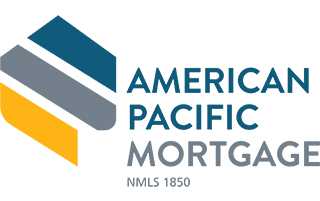Closing Costs For Sellers: How To Save Money
When it comes to buying a home, most buyers are aware that they will be responsible for paying certain fees before they can close. However, sellers are required to pay for closing costs as well. Closing costs can be quite expensive at times, so do everything you can to reduce the amount of the closing costs that you’ll have to pay if you’re selling a house. We present a detailed guide explaining what closing costs sellers are typically responsible for and ways that you can potentially lower your closing costs.
paying certain fees before they can close. However, sellers are required to pay for closing costs as well. Closing costs can be quite expensive at times, so do everything you can to reduce the amount of the closing costs that you’ll have to pay if you’re selling a house. We present a detailed guide explaining what closing costs sellers are typically responsible for and ways that you can potentially lower your closing costs.
What Is The Closing Phase?
The closing phase of the home selling process refers to when the ownership of the house officially changes hands from the seller to the buyer. During the closing, numerous documents will need to be signed to make the sale official. You will be responsible for paying off all the loans on the property to clear the title, while the buyer and their lender will be responsible for transferring the money required to cover the balance owed on the purchase of the house. An escrow company will facilitate the closing and will ensure that all paperwork is in order and that the proper amount of money changes hands so that the sale can close.
Closing Cost Overview
Closing costs consist of a number of fees that must be paid before the sale can be officially closed. The closing costs that the seller is responsible for are usually just deducted from the profit of the sale. In cases where the seller has low equity in the home, they may be required to pay for the closing costs out of pocket.
Who Pays For The Closing Cost?
Both buyers and sellers are working with different individuals to help close the transaction, which means that both are required to pay certain fees. However, these fees do differ. For example, a buyer will have to pay their lender a number of loan processing fees (called origination fees). Since a seller isn’t working with a lender, they won’t have to pay such fees.
Average Closing Cost For Sellers
Generally speaking, the closing costs for a seller amount to roughly 1 to 3 percent of the sale price. They vary so greatly because there may be other fees and penalties involved depending on your particular situation as a seller.
Common Closing Costs For Sellers
Here are some of the common closing costs that you can expect to pay if you’re selling a home:
Title Insurance Fees
Title insures you against any problems with the title of the property that might surface following the sale (such as if someone else decides to challenge you as the rightful owner). A title search should help identify who the rightful owner is and title insurance should help protect you against any other claims. Both the buyer and seller are required to buy title insurance and the average cost tends to hover around $1,000.
Loan Payoff
Expect to pay around 0.5 to 1.5 percent of the sale price in loan payoff fees, which include application fees, assumption fees, prepaid interest, and loan origination fees.
Prepayment Penalties
If you haven’t paid off your mortgage yet, you’ll need to pay it off at closing. However, some mortgage agreements include prepayment penalties. This means that if you pay off your mortgage before the end of its term, you’ll have to pay a penalty. Keep in mind that not all mortgage agreements include such penalties, and such penalties tend to vary from lender to lender.
HOA Transfer Fees
If your property is located in a community subject to an HOA (homeowner’s association), then you’ll have to pay them a transfer fee, which covers the costs of management’s time, the preparation of HOA documents, the distribution of rules and regulations to the new owner, and other required actions. This fee is typically between $100 and $400.
Recording Fees
Every county has its own recording fee, which is the fee the county charges for filing the deed that transfers the property from you to the buyer.
Attorney Fees
Attorney fees are fees owed to your attorney for handling the closing. If an escrow or title agent is handling your closing instead of an attorney, you’ll have to pay them a settlement fee. Attorney fees range from $150 to $500, while settlement fees are usually calculated at around $2 per $1,000 in sales price.
Calculating Your Closing Costs
In addition to taking into account the different fees that you may owe (such as attorney fees, transfer fees, title insurance fees, recording fees, and mortgage pre-payment penalties), you also need to take into account any outstanding debts that you owe on the property. For example, if you still owe property taxes or HOA fees, you’ll need to pay them in full before you can close. Keep all of this in mind when calculating your closing costs. You can also find numerous home sale calculators online that will help give you a more accurate idea of what your closing costs will amount to.
When Are Closing Costs Due?
You will need to pay for all of the closing costs prior to the signing of the purchase and sale agreement. This can be done on the day of the closing or a few days before the closing date.
How To Lower Your Closing Cost
Now that you have an idea of what your closing costs will consist of, you’ll want to find ways to lower them because closing costs can cut into your profit. Of course, some sellers may be selling their homes because that they can no longer afford to be homeowners. If this is the case for you, reducing your closing costs as much as possible will help your financial situation. The following are a few ways that you can lower your closing costs:
Raising The Purchase Price
One of the easiest ways to lower your closing cost is to raise your purchase price. The extra money can help cover many of the fees that you’ll owe. Of course, the risk in doing this is that it could scare away potential buyers. But even raising it by just $1,000 could help cover several fees. If you’re in a seller’s market and there are many interested buyers, you might be able to do this.
Consider The Commission With Your Real Estate Agent
A real estate agent can be very helpful when it comes to guiding you through the process of selling a home, especially when it comes to attracting interested buyers. However, real estate agents often charge significant commissions on the sale of a house. If you really want to reduce your closing costs, you could consider working on your own.
List Your Home On Your Own
It’s entirely possible to list your house on the market by yourself. If you already have a buyer lined up, such as a friend or family member, then perhaps a real estate agent isn’t necessary. It is worth noting that if you’ve never sold a house before, going it alone can be a real challenge.
Look Around For Buyer’s Title Insurance
In some cases, the seller is required to purchase the title insurance policy for the buyer, whereas, in others, the buyer is responsible. It depends on where you are buying your property. If you’re required to buy the title insurance, make sure that you shop around. Different title companies charge different rates, which means that you could save some money by finding a more affordable policy.
Don’t Let any Closing Costs Sneak Up On You!
The last thing you want to do is to assume that the proceeds of the sale will help cover whatever you owe on your mortgage and that the rest will go to you as profit. It involves a lot of people and costs a lot of money to close a sale on something as expensive as a house, and you should expect to pay for numerous fees. Knowing what these fees and closing costs are will make it a lot easier to keep track of your financial situation. This is especially important if you’re planning on buying a new house after you sell your old one.
The views, articles, postings, and other information listed on this website are personal and do not necessarily represent the opinion or the position of American Pacific Mortgage Corporation or US Lending Company.
* For loan examples and more information visit our disclosure page at https://www.uslendingcompany.com/disclosures/





